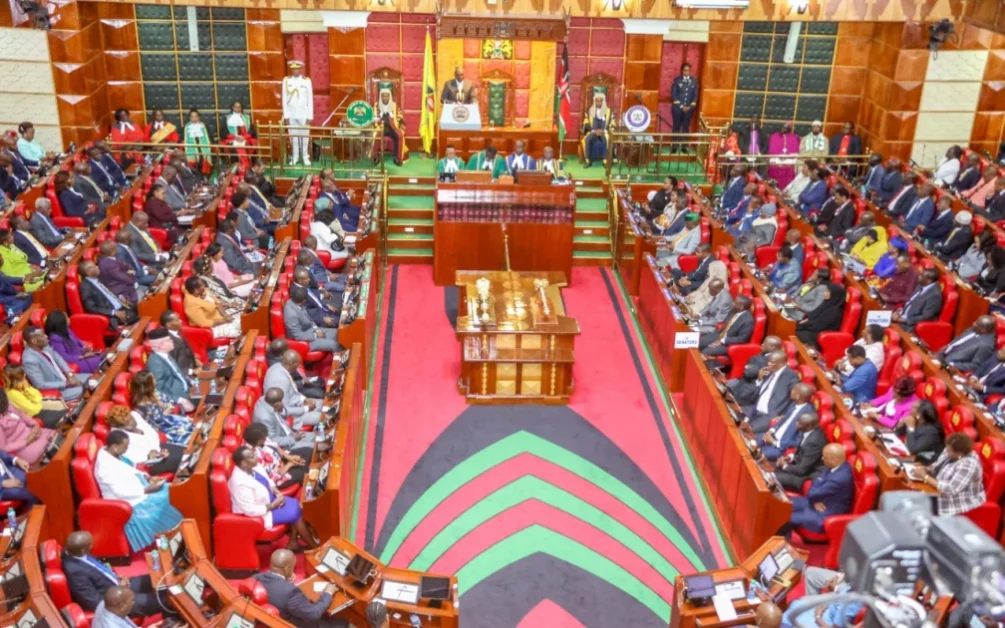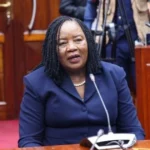The public has sent many petitions to Parliament against the proposed finance bill. The people are against the pressure on lawmakers to approve the legislation.
Kenyans have sent over 1000 memorandums on the finance bill 2023 expressing their stand on the finance bill. Sources have it at 970 memorandums pledging the government not to pass the bill. With Kenya Kwanza hoping to pass the bill through the National Assembly, the petitions make it harder.

Kenyans sent the memorandums through emails, comments and more made through different entities before the responsible committee. They are estimated as 756 through emails and comments and 137 through substantive submissions.
Most of the petitions that were made were mostly attracted by the housing bill on increased VAT on fuel and housing levy. This is because increasing the VAT from eight to 16 per cent will affect everything elses’ price. Considering how expensive life is at the moment, an increase in VAT means that everything becomes more expensive.
Moreover, the housing levy suggests that in addition to all costs, the employees will be charged three per cent of it. This three per cent goes into the affordable housing project to begin if the bill is passed. Another issue raised through the petitions was taxing people earning over Ksh. 500,000 35 per cent of it, increasing their income tax.
Among other reasons outlined in the petitions, was the rejection of proposed agency taxes. These are the withholding of tax, excise duty on gaming and betting revenue as well as withholding VAT, which is to be remitted to the KRA (Kenya Revenue Authority) immediately. This comes about since many Kenyans in these affected spaces are being equally taxed on all other avenues.
As part of the billing process to becoming a law, there must be public participation. The Committee of Finance and National Planning have been holding public participation. This has happened through meetings with different affected people. For example church leaders, the people earning over 500,000, the middle-class people, the people below the poverty line and the employers. Public participation is being held to listen to the people’s concerns about the proposed bill.
“Actually, most corporates will oppose the bill because they don’t want to pay taxes and will incite the public, ” Mr Baya said.
Owen Baya downplays the criticisms that have been made by the stakeholders. He mentions how it is only the corporates that are against the new taxes. But the petitions that have been sent prove otherwise, as more voices have been let out on the proposed bill.
A few organizations that are calling for more scrutiny of the proposed bill are The Anglican Church of Kenya, The Petroleum Institute of East Africa, and the Kenya Airline Pilots Association (Kalpa) among others. The Anglican Church of Kenya under their archbishop, Ole Sapit, says the new tax regime is too harsh on Kenyans. He points out that it needs more public scrutiny before the parliament has to vote for or against it.
Kalpa is against the housing levy that aims to deduct three per cent of one’s salary. It argues that many of its members have already received housing and there is no need for them to contribute to something else. It argues that if the government wants to incorporate the three per cent, they should collapse all other housing schemes so that it can be mandatory for contribution.
” Vital information on the national development project remains unavailable, leaving our members unaware of the details of the project warranting them to commit their monies to the project,” Kalpa adds.
Many of the petitions mention that the employee’s salary will not be increased. They state that the cost of living has gone up, and they can hardly afford basic needs while receiving the set salary. This is before the introduction of the finance bill. Kenyans petition that if the taxes were to be approved, then the salaries of Kenyans to be increased as well
Kalpa argues that with the rampant and runaway corruption in government, Kenya Kwanza should focus on dealing with corruption as a way to enhance revenue and not overtax workers.
“We will ask those in Kenya Kwanza on the floor of the House that if Kenyans have rejected the bill, who are they to say yes and go against the wishes the parliament ought to defend?” posed Robert Mbui, the deputy minority leader.
Read Also: Raila accuses Kenya Kwanza
















